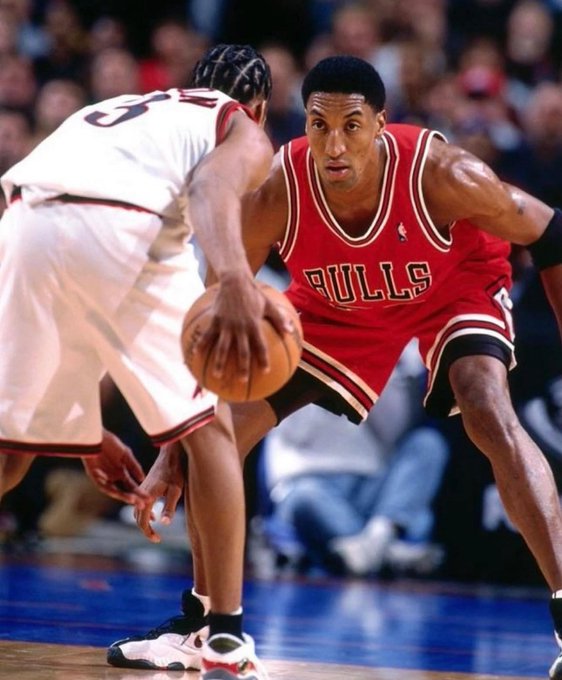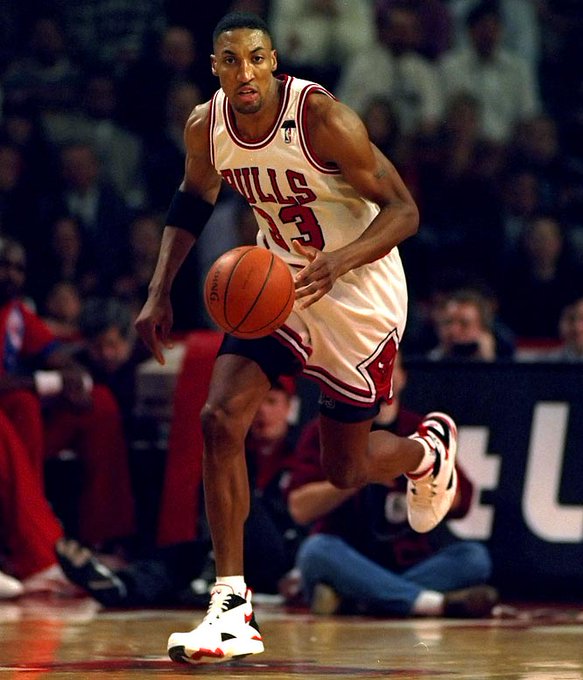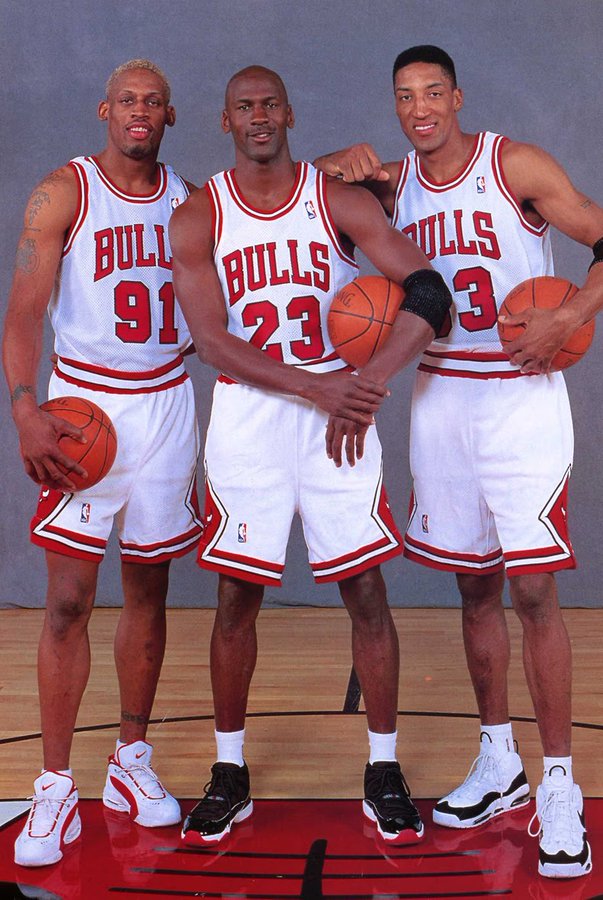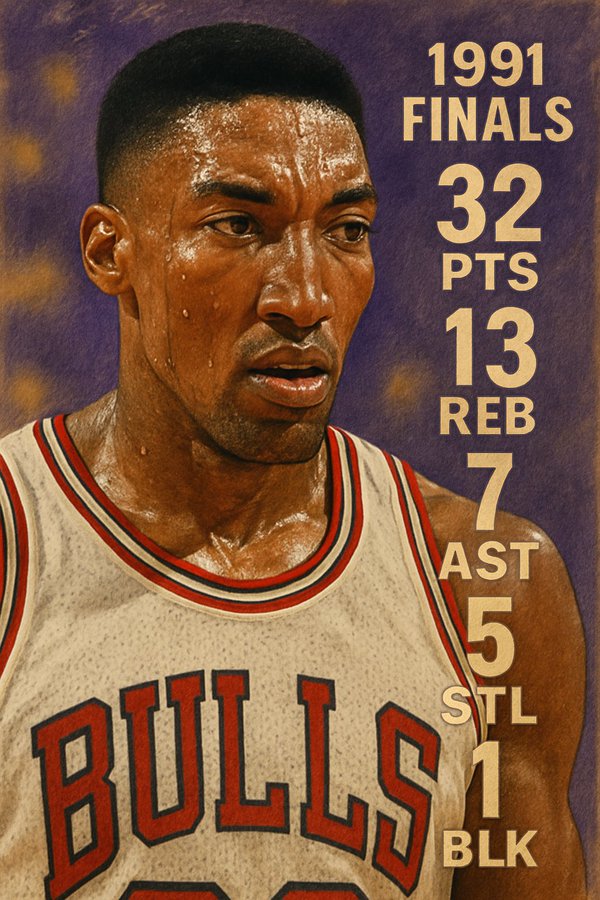
Scottie Pippen, born Scotty Maurice Pippen Sr. on September 25, 1965, stands as one of the most accomplished and versatile players in NBA history. Over a remarkable 17-season career, primarily defined by his 12 years with the Chicago Bulls, Pippen became synonymous with winning and excellence, capturing an astounding six NBA championships alongside Michael Jordan. His impact transcended statistics; he was instrumental in transforming the Bulls into a global dynasty during the 1990s and played a pivotal role in popularizing the NBA worldwide. Universally regarded as one of the greatest small forwards ever, Pippen’s unique skill set allowed him to dominate multiple facets of the game. As described by the Naismith Hall of Fame, “the multidimensional Pippen ran the court like a point guard, attacked the boards like a power forward, and swished the nets like a shooting guard.”
Pippen’s brilliance was consistently recognized through individual accolades. He was named to the NBA All-Defensive First Team an incredible eight consecutive times, a testament to his lockdown perimeter defense and basketball IQ. Offensively, he earned All-NBA First Team honors three times and was selected as a seven-time NBA All-Star, earning the All-Star Game MVP award in 1994. His status among the game’s elite was cemented when he was named one of the 50 Greatest Players in NBA History during the 1996-97 season, an honor reaffirmed in 2021 with his inclusion on the prestigious NBA 75th Anniversary Team. The Chicago Bulls retired his iconic number 33 jersey in 2005, placing him alongside legends Jerry Sloan, Bob Love, and Michael Jordan. His championship pedigree was further highlighted by his integral role on both the 1992 and 1996 Bulls teams, each selected among the Top 10 Teams in NBA History. After leaving Chicago, Pippen continued his winning ways, making the playoffs 16 consecutive times throughout his career, including seasons with the Houston Rockets and Portland Trail Blazers.
Pippen’s dominance extended to the international stage, solidifying his legacy as a winner across all platforms. He is one of only two NBA players (alongside Jrue Holiday) to achieve the rare feat of winning both an NBA championship and an Olympic gold medal in the same year twice, accomplishing this in 1992 and 1996. He was a foundational member of the legendary 1992 U.S. Olympic “Dream Team,” which captivated the world and decimated opponents by an average of 44 points per game. Four years later, he was a key veteran leader on the 1996 Olympic team, wearing number 8 for both gold-medal campaigns. This unparalleled success culminated in a unique honor: dual induction into the Naismith Memorial Basketball Hall of Fame in 2010. He was enshrined simultaneously for his extraordinary individual career and as a member of the immortal “Dream Team.” His alma mater, the University of Central Arkansas, also retired his number 33 in 2010. Off the court, Pippen was formerly married to television personality Larsa Pippen and is the father of NBA player Scotty Pippen Jr
Scottie Pippen’s Humble and Challenging Beginnings

Born on September 25, 1965, in Hamburg, Arkansas, Scottie Pippen emerged from a large, hardworking family facing significant adversity. He was the youngest of twelve children born to Ethel and Preston Pippen. His father worked at a paper mill, but the family’s finances were strained, making it impossible for his parents to send their older children to college. Pippen inherited his remarkable height – he became the tallest in the family – from his parents, with his mother standing 6 feet tall and his father 6’1″.
Tragedy struck the Pippen household twice during Scottie’s youth. When he was young, his second-oldest brother suffered a paralyzing injury during a high school physical education class. Six years later, his father experienced a debilitating stroke that paralyzed his right side, severely impaired his ability to walk, and affected his speech. Despite these immense family challenges, Pippen excelled as a point guard at Hamburg High School. He led his team to the state playoffs and earned all-conference honors in his senior year. However, his talents went unrecognized by college recruiters, and he received no scholarship offers, marking an unlikely and difficult start for a future basketball legend.
Scottie Pippen’s Meteoric Rise at Central Arkansas

Scottie Pippen’s path to basketball stardom began unconventionally at the University of Central Arkansas (UCA). Discovered by head coach Don Dyer, Pippen joined the team as a walk-on, having received no scholarship offers out of high school. Playing in the lesser-known NAIA division, his performances initially garnered little media attention compared to the NCAA spotlight. Remarkably, Pippen experienced a dramatic growth spurt during his college years, shooting up from 6’1″ (1.85 m) at high school graduation to his eventual NBA height of 6’8″ (2.03 m).
This physical transformation coincided with a rapid development of his skills. By his senior year (1986-87), Pippen had become an utterly dominant force within the Arkansas Intercollegiate Conference. His staggering per-game averages – 23.6 points, 10 rebounds, and 4.3 assists while shooting nearly 60% from the field – showcased his all-around brilliance. This exceptional performance earned him the prestigious honor of consensus NAIA All-American in both 1986 and 1987. Despite UCA’s lower profile, Pippen’s extraordinary talent and production could not be ignored, finally drawing the critical attention of NBA scouts who recognized a future star in the making. His college career transformed him from an overlooked walk-on into a legitimate NBA prospect.
Forging a Champion:Scottie Pippen Early Bulls Years (1987-1990)
Scottie Pippen’s arrival in the NBA was orchestrated by a franchise eager to build around Michael Jordan. Though selected 5th overall by the Seattle SuperSonics in the 1987 NBA Draft, the Chicago Bulls had meticulously targeted the talented but raw forward from Central Arkansas. They swiftly engineered a trade, sending center Olden Polynice (the 8th pick) and future draft considerations to Seattle to secure Pippen. He joined fellow rookie Horace Grant (10th pick), forming a young, athletic forward duo initially brought off the bench. Pippen’s NBA debut on November 7, 1987, offered a glimpse of his versatile potential: 10 points, 4 assists, 2 steals, and a rebound in 23 minutes during a win over Philadelphia.
Scottie Pippen development accelerated dramatically under the intense tutelage and competitive fire of Michael Jordan. Beyond team practices, their legendary one-on-one battles became crucibles where both honed their offensive moves and defensive tenacity. Jordan served as both a relentless motivator and an instructional mentor, pushing Pippen to refine his existing skills and rapidly develop new ones. This partnership bore its first significant fruit during the 1988 NBA Playoffs. Pippen seized the starting small forward position, providing crucial athleticism and defense that helped propel the Bulls past the first round and into the conference semifinals for the first time in over a decade, signaling a shift in the franchise’s trajectory.
By the turn of the decade, Pippen had emphatically emerged as one of the league’s premier young forwards. His statistical leap in the 1989-90 season was remarkable: career highs in points (16.5 PPG), rebounds (6.7 RPG), and field goal percentage (48.9%), coupled with elite defensive play that saw him finish third in the entire NBA with 211 steals. This all-around excellence earned him his first NBA All-Star selection in 1990. His evolution mirrored the team’s rise; the Bulls, fueled by the burgeoning Jordan-Pippen tandem, reached the Eastern Conference Finals in both 1989 and 1990. However, their path was blocked each time by the physically imposing and experienced “Bad Boy” Detroit Pistons, who employed their infamous “Jordan Rules” defense and a style designed to intimidate the rising Bulls.
The 1990 Eastern Conference Finals proved particularly agonizing for Pippen and Chicago. After battling through a grueling series, the decisive Game Seven was marred by personal adversity for Pippen. Suffering a severe migraine headache just before tip-off, his vision and performance were severely compromised. Visibly affected, he managed only 2 points, hitting just one of ten field goal attempts. The Bulls were overwhelmed 93-74, their championship dreams deferred once more by Detroit. This painful defeat, particularly Pippen’s migraine struggle, became a defining moment of adversity, underscoring the physical and mental hurdles the young Bulls still needed to overcome to reach the pinnacle of the NBA.
